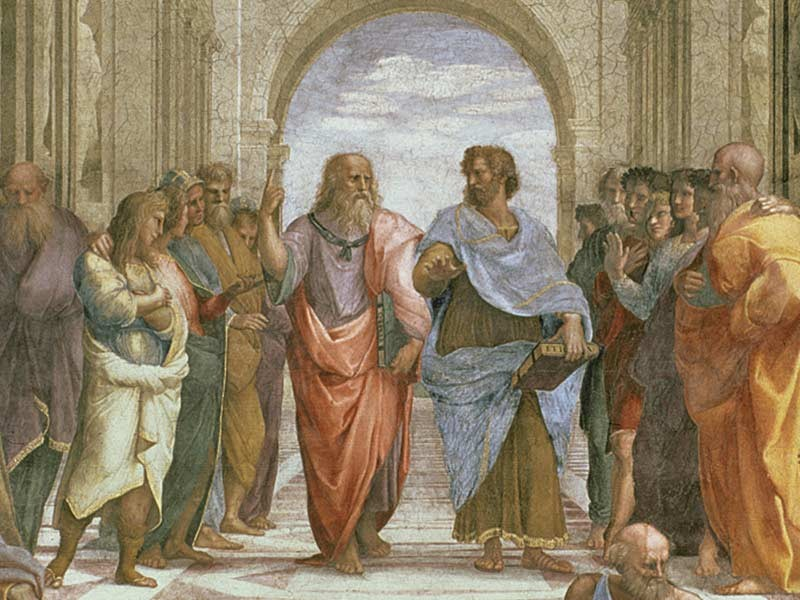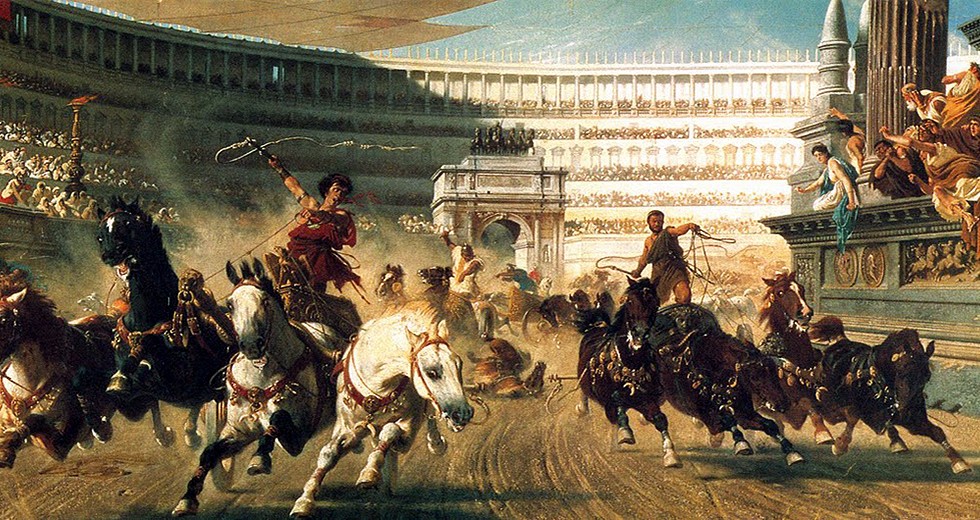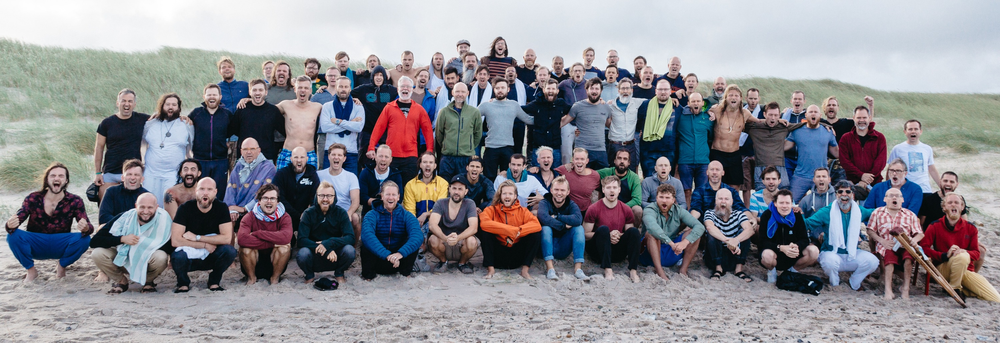Finding your Ur-Father

This is the first post in a series leading up to the European Men’s Gathering this year, which I will be posting in order to set out my thoughts on the subject.
Finding your Ur-Father
Fathers. We all have one. Many of us are one already or hope to become one.
But a father is not just a description of a biological relationship between a living being and its offspring.
It is far more than that.
For anything or anyone born, a Father and Mother are the source of their being – the creators and sustainers of our life. For a family, a father is most often the main provider. A Founding Father is the architect of the rules governing a society. Father figures are often the rulers and arbiters of our communities. Fathers of organisations are the initiators, the engineers of the culture.
The Fathers of Western civilisation such as Socrates, Plato and Aristotle have shaped the very way that we can possibly think and perceive logic and rationality. Isaac Newton laid the foundation of the modern scientific method and our understanding of the material world. American life and thus global culture is shaped by the Founding Fathers of the USA constitution.
A more recent example, Brazilian Jiu-Jitsu was founded and developed by Gastão Gracie in Rio De Janeiro in the 20th century and transformed the entire world of martial arts.
No matter what community or activity you are involved in, chances are there was a father figure who initiated and laid out the framework for it.
We owe much to our Fathers. Actually we owe everything to our fathers – in one sense, everything in existence, everything that we enjoy and appreciate is a result of a father and a mother. Perhaps that is why we can at times take them for granted.
My purpose here is to challenge you to deepen your understanding of Fatherhood and your relationship to fatherhood. Of course that is relevant for your biological father. But this is deeply and more powerfully related your understanding of The Father figure in general. My aim here is to go all the way and challenge you to look at your understanding of the Ur-Father.
How to be a Father
To aspire to be a father is a good thing. To become better fathers, we need to understand the father as an archetype – to abstract out the function and qualities of the father. We have already pointed out above that the father is the creator, provider, sustainer, architect. He provides the framework, the information, the blueprint, while the mother provides the body. Consider the sperm cell and the egg – the sperm cell proves more or less only a DNA blueprint while all the flesh and blood of the cells of the child come from the mother.
These are all aspects of the father archetype. So we see that there is one absolutely essential element needed in the father in all of these roles – the father provides the blueprint – the model of how to be, how to act. So to be a good father, he needs to be a role model of virtue.
What does this mean? It means that, in order to be a father, you need to figure out what virtue looks like and to develop those aspects within yourself. If you are unable to do that, and do it to a level where you are able to become a role model for others, no one will ever trust you, follow you or settle their life under your fatherly guidance.
Let’s be straight. Without virtue, you may be able to get a confused woman pregnant and thereby become a biological father. But even that is unlikely. Any woman worth anything as a mother will be very careful with what kind of man she will allow to get her pregnant. And a woman who gets herself pregnant from a man who has no value or virtue as a role model, is also likely to lack the ability to maintain a healthy family unit with you.
Why do fathers need to be role models? Well the function of the father, and what the mother is looking for, is a man to provide an example of behavior for his sons to follow in his footsteps. The sons of a good father will naturally want to be like him, to attain what he has attained. He will challenge his sons, inspire them, instruct, encourage and teach them, so that they will gain all the wisdom, insight and skills needed to attain manhood. At which point he will pass on the mantle to them, giving them the opportunity to surpass even him.
So we need fathers. And especially we need good fathers.
Now we understand how a father is good, we can take the next step, and reflect on how we are showing up as a son. Not just a son to our biological father. But even more, I will argue here, as a son to our Ur-Father.
Let me explain what I mean.
A Father Provides Stability
As a mentor or a role model, a father is a person who others can lean on. In times of trouble or chaos, when life happens and things go awry, then the father is the rock on which the waves of life can break, who is solid and dependable. That quality of being unchanging and reliable is what creates the sense of safety and security that others can build up their lives around.
The question then is, how does the father develop this capacity for stability? What is his foundation built on? What are the steel pylons that he has sent into the earth to root him to reality? And importantly, what does he lean on when, despite all of his preparation and training, something comes along that gets him out of his depth, and when he is unable to handle the storm in his own strength?
When life gets too tough to handle, some men lean on their wives. But she was looking to lean on him, so that is a fragile game, and vulnerable to issues which hit both partners. Many turn to distraction. The timepassing industry. Computer games. Netflix. Alcohol. Drugs. Pornography. And all the other addictions to distract ourselves from dealing with the problems we are facing, whether it is burying ourselves in work, or a cycle of binge drinking.
Some men have a good circle of loving friends, and are able to turn to them in times of trouble. But friends cannot always be counted on either. Sometimes we are even betrayed by our friends.
The Ultimate Father Figure
There comes a time in every man’s life, where he has the opportunity to look deeper into his life. Who he is. What he is doing here.
Now I am going to use that G-word. It has fallen out of fashion these days, in the same way that Fatherhood has fallen out of fashion. But of course those two words are connected in a very deep way. The biggest word for Ur-father is:
God.
Father.
Father God.
God is the Ultimate Father. The Ur-father. Our ideas about God are influenced by our ideas about Fathers. If the father archetype is the abstraction of the positive virtues required for a role model, then God is an even higher level abstraction of every desirable trait of what is to be considered “the good”. If this way of thinking is news to you, then I can recommend to head right over to Youtube and look up Jordan Peterson and the first of his biblical lectures on “Introduction to the Idea of God”.
So here is a claim I want to put forward to you for consideration. I do not know this for certain. But it is something that I have been talking to men about for about three years now, at all the Maniphesto events I have organised.
Here it is: If you do not have a personal and working understanding of “God the Father”, then you have likely dedicated your life worshipping a false Ur-Father or idol, probably without realising it.
Notice, I am not saying that you need to become religious or convert to Christianity. I am a member of the Eastern Orthodox Church, Maniphesto has teachers who are Daoists, Buddhists and Atheists. Our goal is not to convert you, but to invite you to contend with concepts in a way that we am absolutely convinced will lead you to a stronger personal understanding of your relationship to fatherhood, virtue and authority.
So bear with me a while longer, even if you are feeling a little triggered or distracted. Or lets say, ESPECIALLY if you are either of those things. If you didn’t like me using the G-word, chances are good that you have a tough time submitting to authority figures in general, even sometimes to your detriment. These topics are difficult, and tend to stir up emotions and resistance.
Who’s Your Daddy?
So what about You?
I expect that, if you are good at being honest with yourself, you will see how this applies to your life. If you have made a conscious decision of what “God” you want to worship, then you are probably aware of the things that distract you from that and hold you back from realising your full potential. If you have no clear concept of what you are worshipping, then there is a greater likelihood that you are unconscious about your personal religion.
If you have never thought about it before, it often requires some self reflection to identify what you are worshipping. One way of starting to think about it could be to ask yourself questions such as:
What activities do you spend most of your waking life on? What are you most passionate about? What is the underlying motivation that gets you out of bed in the morning?
The first answer provides the strongest pointer to your primary “religion”. Especially if the first two answers point at the same activity, then you have a well aligned and embodied practice. If you spend most of your life on something you actually dislike and get your energy and reason for living from something else, then we have less alignment and a more complex situation – and you will need to spend more time thinking critically about your underlying motivations, which is the most difficult but relevant question.
Note that this also means – if you identidy yourself as a Christian, but are more passionate about earning money or getting more followers on your podcast than you are about serving God, then you are not really a Christian at all.
So. Are you motivated by Sex? Money? Status? Power?
Earning the acceptance of others?
Many of us start with dedicating our life to earning money. If we manage that, status and recognition from our peer group becomes more important. If we step out of mainstream culture, then novel and exciting experiences take over, or we develop a lifestyle based on pleasure seeking.
Or you fit in ways of adding side religions into your mainstream life as a way of adding meaning and not feeling bad about your boring job, your terrible relationship or your lack of self worth. You start collecting expensive furniture or wines. You sign up for an iron man. You become vegan. You go to a self-development workshop. All good and fine things by themselves. But if you have no other religion in your life, if you have no other Ur-Father, then you will start treating these things as idols and your pursuit of them as a religion.
The alcoholic, the sportsman who neglects his family, the angry radical vegan, the workshop junkie.
Who’s your daddy?
If we have no other Ur-Father, then we turn the things that we spend time on into idols to get them to fill the gap. This can be the case for activities such as sports, physical objects such as money and ideas such as political movements. These idols become our Ur-fathers.
The reason this is problematic is that if we have idols as our Ur-fathers, they become the ultimate arbiter of value and truth. They set up a value hierarchy and stipulate the goal that we aim for and thus the compass for all of our decisions in life. They are the standards and objectives that shape our being and mould our behavior. They are the things that we focus our time and energies on the most and thus become our teachers and guides through life.
Think about it for a bit. If your greatest goal in life is to earn money, then you make money your guiding principal and decider of value. Money is your source of being-in-the-moment – your action and thus what you are is determined by money.
Money becomes your Ur-Father.
As a son of money, there is a good chance that you will become rewarded with money. But you will also tend to put money ahead of quality of life, of your relationships and your own health. Of course, you could try and add a few more gods to your repertoire, lets say, the gods of personal relationships, personal health and work-life balance. But this is quickly going to get too complicated and confusing and end you in a mess.
Ur-Fathers tend to be Jealous Gods.
Finding your Ur-Father
So what to do about all of this? It’s easy enough to criticise other people. The difficult thing is creating a compelling personal vision for the individual man to find the path to a more meaningful life and create the energy to actually walk that path.
That is what we have been working on at Maniphesto for years. We have found some things that seem to work at least some of the time. We are still getting better. We have realised that we cannot help men with anything that we have not resolved in ourselves, which means that the work always starts with us. The main element that I think we have really got right is brotherhood. That is the horizontal relationship and while it is not easy, I think that we have some really great tools.
But this series of posts is not about the horizontal. It is about the vertical. This is the approach of getting to know your own Ur-Father, your Father-God. That is the next step for many of us. I am certain that we need to do it and that it will continue to give positive results as we progress. It is something that can be done no matter your religious convictions, where you are in your life, who you are and what has happened before. Having a good band of brothers is a big help of course.
So I believe, that if you want to be a good father for others, then you need to get to know your Ur-Father.
If your primary orientation in the world is as an evolutionary biologist, then you need to study Darwin and the men that have built on is theories. Not just know a bit about them. I mean study them intensely – find everything you possibly can about them and particularly what motivated them. If you are a philosopher, then start with Socrates. If you are a Neo-Marxist, then start with Das Kapital.
But take note, “knowing” is not just an intellectual exercise. In ancient writings, if it said “so-and-so knew is wife”, it means that he had sex with her, and that they are joined together in an state of intimate union and knowing. That is more the kind of knowing you need to do, rather than just reading a book.
Be careful of idolising your father figure. If he was just a man, then understanding his weaknesses and failures will be a clear opportunity for you to grow also.
Reading about your Father will get you some of the way. But you need more. You need to experience him.
If you are a Christian you have the teachings of Jesus and the Church Fathers. Much of Western Christianity from the last 1000 years is increasingly is clearly disconnected from its own roots too, so if you have found that Christianity seems to lack depth for you, then dig further back – the Orthodox Church is really the holder of the most ancient traditions.
Whoever and whatever you are, get to know your father intimately. Understand his values, his nature. The small and intimate things about him that only his closest sons understand. Especially study all of the stories about him that you can find. Stories play a very special role in communicating at this archetypal level of understanding.
If you are open to it, you can try praying to your father. You might experience a revelation. Or you might find that your father’s nature is very different to what you expected.
And then find other people who share the same father as you and who have spent time getting to know him. These are your brothers and sisters. We all need older brothers and sisters to look out for us, to point us on our way, and to inspire us.
At our events, Maniphesto uses “elders”. One of the roles of the elders is to share their stories with us of how they have searched for the Ur-father, the detours and distractions on their search, and the times they have actually managed to glimpse Him.
But no one can tell you exactly how you are to find Him. But if we are open to listening, then life has a tendency to point towards him. And I believe, that if you want to know him, and I mean really want to be reunited with your Ur-Father, and you listen carefully to what life and reality is saying to you, then you will hear him calling you.



Responses